Find Help
More Items From Ergsy search
-
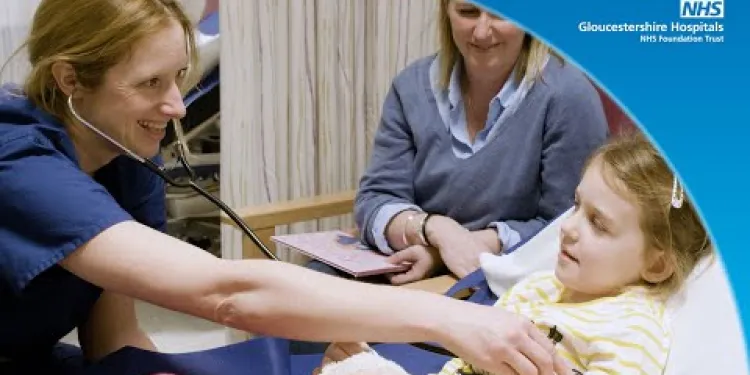
Having an operation at the Children’s Centre
Relevance: 100%
-
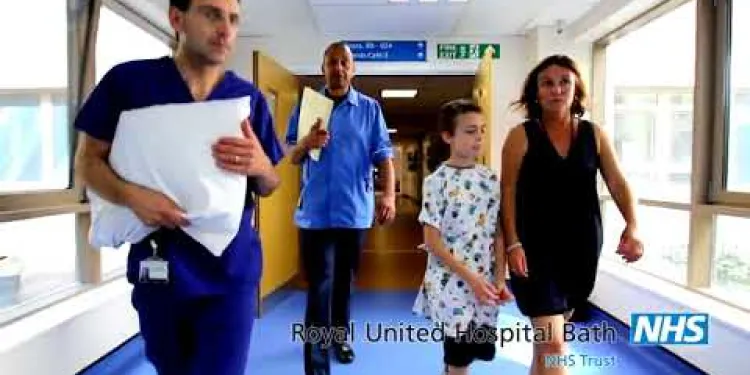
Having an anaesthetic for your operation - for over 8s
Relevance: 95%
-
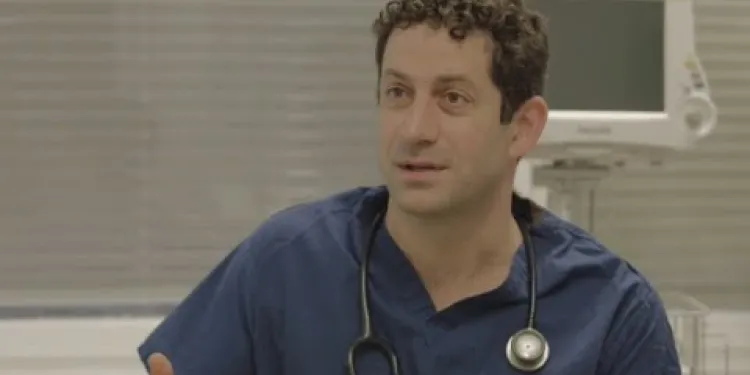
What to expect on the day of your operation
Relevance: 93%
-
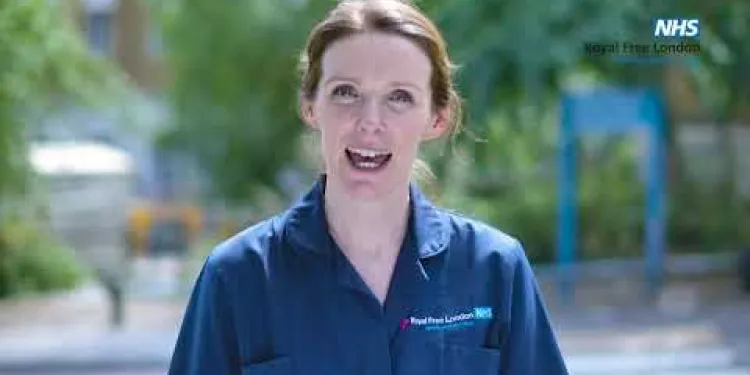
Having an operation or procedure at the Royal Free London
Relevance: 92%
-

How often are operation waiting times updated?
Relevance: 92%
-
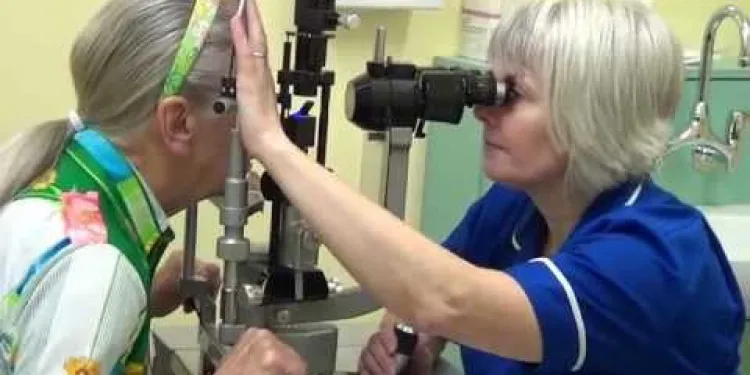
Your Cataract Operation
Relevance: 90%
-
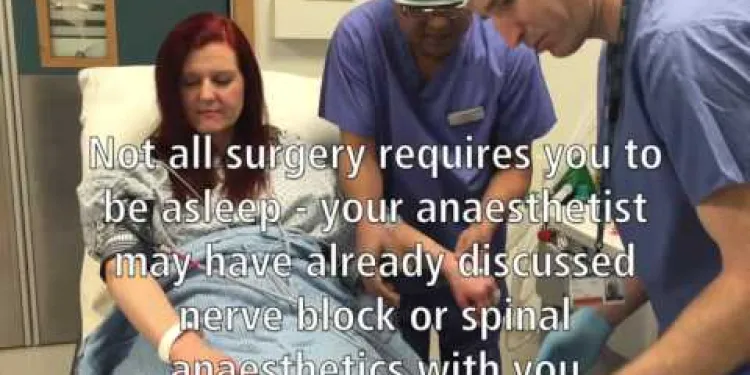
Your Operation at East Surrey Hospital
Relevance: 90%
-

Are there specific resources for urgent operation waiting times?
Relevance: 89%
-

Are there apps available to check operation waiting times?
Relevance: 88%
-

Does my doctor have access to operation waiting times?
Relevance: 87%
-

Can I get information on average waiting times for operations?
Relevance: 87%
-

Can I find operation waiting times in healthcare performance reports?
Relevance: 85%
-

Having an operation
Relevance: 84%
-
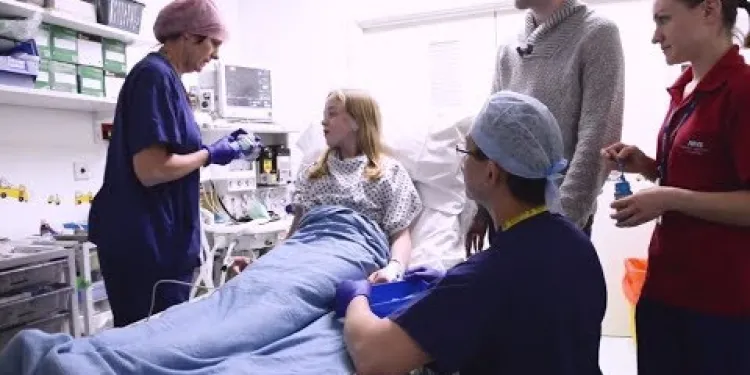
Having an operation in Oxford Children's Hospital with YiPpEe
Relevance: 84%
-

Do private hospitals have shorter waiting times for operations?
Relevance: 82%
-
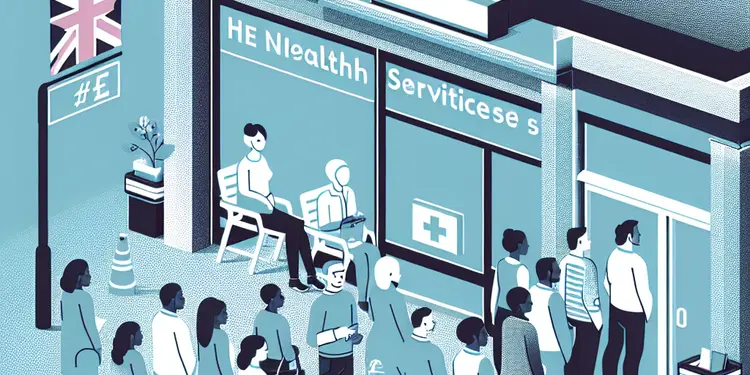
How can I find current waiting times for operations in my local hospital?
Relevance: 81%
-

How can I find information on waiting times for an operation in my area?
Relevance: 76%
-

Are waiting times for operations the same across all hospitals?
Relevance: 75%
-

Can I appeal a long waiting time for my operation?
Relevance: 73%
-

What steps can a company take if shareholder disputes begin to impact business operations?
Relevance: 66%
-

Thyroid eye disease. Squint surgery - The operation
Relevance: 64%
-
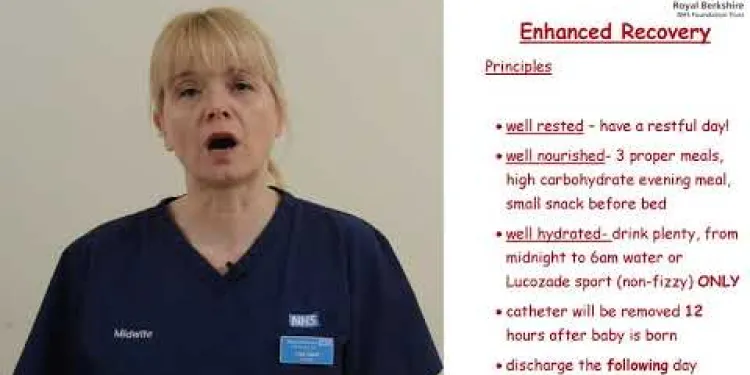
Pre operative Information for Planned Caesarean Birth
Relevance: 61%
-

How long does it take to recover from a hip replacement operation?
Relevance: 59%
-
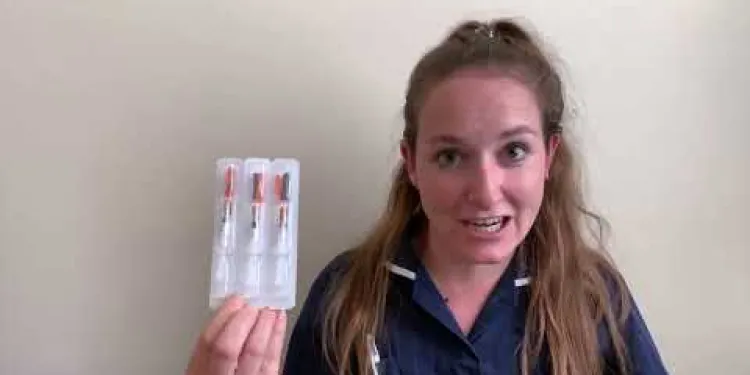
Bariatric Surgery - What to expect when you come to hospital for your operation.
Relevance: 55%
-

What is the difference between a food bank and a food pantry?
Relevance: 35%
-

Are food banks open on weekends?
Relevance: 35%
-

Can my partner be with me during the Caesarean section?
Relevance: 34%
-

What are the consequences for banks not complying with transparency standards?
Relevance: 33%
-

What factors influence the difference in electricity prices among UK energy companies?
Relevance: 31%
-

What factors influence changes to the energy price cap?
Relevance: 31%
-

Can UK citizens use mobile phones in the EU without extra charges?
Relevance: 31%
-

What is a food bank?
Relevance: 31%
-

What are the financial implications of water loss for the UK?
Relevance: 30%
-

Are there penalties for water companies besides issuing refunds?
Relevance: 30%
-

Can my partner be present during the C-section?
Relevance: 30%
-

Can director disputes lead to company liquidation?
Relevance: 29%
-

How does law enforcement typically identify drug offences?
Relevance: 29%
-

How is the energy price cap calculated?
Relevance: 28%
-

What are common causes of director disputes?
Relevance: 27%
-

How important is it to report a scam?
Relevance: 27%
Your Operation at East Surrey Hospital
Introduction
East Surrey Hospital, located in Redhill, Surrey, is a major healthcare provider offering a wide range of surgical procedures. Patients from across the United Kingdom seek the hospital's highly esteemed services. This guide aims to inform you about what to expect before, during, and after your operation.
Pre-Operation Preparation
Before your scheduled operation, you will be contacted by the pre-assessment clinic for an evaluation. This includes medical history review, physical examination, and necessary tests such as blood work or imaging. Fasting instructions, typically requiring no food or drink for at least six hours before surgery, will also be provided. Adhering to these guidelines ensures the best possible outcome for your procedure.
The Day of the Operation
On the day of the operation, arrive at the hospital at the designated time. You will be greeted by the nursing staff who will verify your details and prepare you for surgery. You will then be transported to the operating theatre where the anesthesia team will make sure you are comfortable and ready. The surgical team will perform the operation using the latest techniques and technology to ensure high standards of care.
Post-Operation Care
After your surgery, you will be moved to a recovery area where your vital signs will be closely monitored. Once stable, you will be transferred to a ward. Pain management, wound care, and physiotherapy may be part of your post-operative care. A follow-up appointment will be scheduled to monitor your recovery progress.
Contact and Support Information
For any questions or concerns, you can reach the East Surrey Hospital main switchboard at 01737 768511. The hospital also offers support groups and counseling services to assist you and your family throughout the surgical journey.
Conclusion
Your health and well-being are paramount at East Surrey Hospital. Comprehensive pre- and post-operative care ensures you receive the highest quality treatment. With skilled staff and state-of-the-art facilities, you can approach your surgery with confidence and peace of mind.
Your Operation at East Surrey Hospital
Introduction
East Surrey Hospital is in Redhill, Surrey. It is a place where people go to have surgeries. This guide helps you know what will happen before, during, and after your surgery.
Getting Ready for Your Operation
Before your operation, the hospital will call you. They will check your health and do some tests. They will tell you not to eat or drink for at least 6 hours before the surgery. This helps keep you safe during your operation.
The Day of the Operation
On the day of your surgery, come to the hospital at the time they tell you. Nurses will check your information and get you ready. You will go to the surgery room. The doctors will make sure you are comfortable before starting. They will use special tools to help you get better.
After the Operation
After surgery, you will go to a recovery area. Nurses will check you until you are well enough to move to a regular room. You might need medicine for pain and help with moving. You will have another appointment to see how you are healing.
Contact and Support Information
If you have questions, you can call the hospital at 01737 768511. The hospital also has groups and people to talk to who can support you and your family.
Conclusion
We care about your health at East Surrey Hospital. The staff will take good care of you. They will help you feel safe and calm about your surgery.
Frequently Asked Questions
What should I expect before my operation at East Surrey Hospital?
Before your operation, you will be contacted to attend a pre-assessment clinic. This is to assess your overall health and ensure you are fit for surgery. You may need to undergo blood tests, ECGs, or other examinations.
How do I prepare for my surgery?
You may be advised to fast, typically overnight, before your surgery. This includes not eating or drinking. Follow the specific instructions provided by the pre-assessment clinic or your surgeon.
What if I am taking medication?
You should inform the medical team about all medications you are currently taking. You may be instructed to stop certain medications before surgery. Always follow the guidance given by your healthcare team.
How do I get to East Surrey Hospital?
East Surrey Hospital is well-served by public transport. You can take local buses or trains to Redhill station and then use taxis or buses to reach the hospital. Parking is available, but it can be limited.
What should I bring to the hospital?
Bring comfortable clothes, toiletries, any medication you’re taking, and your hospital appointment letter. It may also be helpful to bring some reading material or music to listen to during your stay.
How long will I stay in the hospital?
The length of your stay depends on the type of surgery. Some procedures are day cases, while others may require you to stay for a few days. The surgical team will inform you about the expected duration of your stay.
Can I eat and drink after my operation?
Your diet may be restricted immediately after surgery. You might start with fluids and gradually progress to solid foods, as per your doctor's advice.
Will I be in pain after the surgery?
Some discomfort is expected after surgery. The medical team will provide pain relief to help manage this. Inform your nurse or doctor if the pain is severe or difficult to control.
Can my family visit me in the hospital?
Yes, family and friends can visit you. Visiting hours and policies may vary, so it's best to check with the hospital staff for current visiting guidelines.
How will I know if my surgery was successful?
Your surgeon will discuss the outcomes of the surgery with you. You will also have follow-up appointments to monitor your recovery and address any concerns.
What kind of follow-up care will I need?
Follow-up care varies depending on the procedure. You may need wound care, physical therapy, or ongoing medication. Specific instructions will be provided by your healthcare team.
How do I manage my wound after the operation?
Keep the wound clean and dry. Follow the care instructions given to you at discharge, including when to change dressings and how to monitor for signs of infection.
What are the signs of complications after surgery?
Look out for signs such as increased pain, redness, swelling, discharge from the wound, fever, or difficulty breathing. Contact the hospital or your GP immediately if you experience any of these symptoms.
Will I need physical therapy after my surgery?
Some surgeries may require physical therapy as part of the recovery process. Your medical team will advise you if this is necessary and arrange for you to see a physiotherapist.
How soon can I return to work or daily activities?
This depends on the type of surgery and your recovery progress. Your surgeon will provide guidance on when it is safe to return to work and resume normal activities.
What will happen before my operation at East Surrey Hospital?
Here is what you can expect:
- You will meet with the doctor. They will talk to you about the operation.
- You can ask the doctor any questions you have.
- You may need to have some tests. These tests help the doctors know more about your health.
- You might talk to a nurse. They will help you get ready for the operation.
It is good to have someone with you. They can help you remember what the doctor and nurse say.
Before your operation, you will be asked to go to a check-up clinic. This is to make sure you are healthy enough for the operation. You might need a blood test or heart check-up.
How do I get ready for my surgery?
Here are some tips to help you get ready for your surgery:
- Ask someone to talk to you about what will happen. This could be a doctor or a nurse.
- Make a list of questions you have and ask for clear answers.
- Arrange for a friend or family member to take you to and from the hospital.
- Get help at home for after the surgery.
- Follow your doctor's instructions. This could be about eating, drinking, or taking medicine before the surgery.
- Relax and stay calm by listening to your favorite music or practicing deep breathing.
You can use pictures or videos to understand more about the surgery. You can also ask someone to read the information out loud for you.
Before your surgery, you might be told not to eat or drink anything. This is called fasting. You usually need to start the night before your surgery. Listen to the exact rules from the clinic or your doctor.
Helpful tip: Use a timer or an alarm on your phone to remind you when to stop eating or drinking.
What if I am taking medicine?
Tell the doctors and nurses about all the medicines you are taking. They might ask you to stop taking some medicines before surgery. Always do what your healthcare team says.
How can I go to East Surrey Hospital?
It's easy to get to East Surrey Hospital using buses and trains. You can take a bus or train to Redhill station. From there, you can use a taxi or another bus to get to the hospital. There is parking at the hospital, but there might not be a lot of spaces.
Here are some tips to make your visit easier:
- Check the bus and train times before you travel.
- Use a map app on your phone to find the best route.
- Ask someone for help if you get lost.
What should I take to the hospital?
Here are some things you might need to take with you:
- Your ID or hospital card
- Any medicines you take
- Comfy clothes to wear
- Your toothbrush and toothpaste
- A book or toy to keep you busy
- Your favorite blanket or stuffed toy
Ask a family member or friend if you need help packing these things.
Bring comfy clothes, things like a toothbrush and soap, any medicine you are taking, and your hospital letter. You might also want to bring a book or some music to enjoy while you are there.
How long will I be in the hospital?
You might stay in the hospital for a short time. It could be a day or a few days. It depends on why you are there.
Ask your doctor or nurse. They will tell you more.
You can bring a favorite book or toy. This can help you feel happy while you are there.
How long you stay in the hospital depends on your surgery. Some people go home the same day. Sometimes, you might need to stay a few days. The doctors and nurses will tell you how long you will need to stay.
If you find reading hard, try using a text-to-speech tool to listen to the words. This might help you understand better.
Can I eat and drink after my operation?
You might wonder if you can eat or drink after your operation. Here is what you should know:
- Ask your doctor or nurse if it is okay to eat and drink. They will tell you when it is safe.
- Start with small sips of water. If you feel okay, you can have a little more.
- Try eating soft foods first, like soup or yogurt.
- If you feel sick, stop eating or drinking and tell the nurse.
After your surgery, you might need to be careful with what you eat. You could start by drinking just liquids. Then, slowly, you can start eating solid foods. Your doctor will tell you what to do.
Will it hurt after the surgery?
The doctor will help you with pain. You might feel some hurt, but it will get better.
You can use things like:
- Pain medicine: Pills to help hurt go away.
- Ice packs: Cold things to make pain less.
- Rest: Taking breaks to help your body heal.
- Talk to someone: Tell your nurse or doctor if it hurts a lot.
These can help you feel better after surgery.
After surgery, it's normal to feel some pain. The doctors will give you medicine to help with the pain. Tell the nurse or doctor if the pain is really bad or hard to stop.
Can my family come see me in the hospital?
Yes, your family can visit you in the hospital. Here are some tips:
- Ask the nurse when visiting hours are.
- Check if there are any rules about how many people can visit at once.
- Make sure your family knows how to get to the hospital.
- They might need to wear a mask or wash their hands to keep everyone safe.
If you have trouble understanding this, ask a nurse or a family member for help. You can also use a picture or symbol chart to help with communication.
Yes, your family and friends can come see you. The times they can visit might be different at each hospital. It's a good idea to ask the hospital workers about the rules for visits.
How can I tell if my surgery went well?
Your doctor will talk to you about what happened in the surgery. You will also have more visits with the doctor to see how you are getting better and to talk about any worries you have.
What care will I need after my treatment?
After your treatment, you might need different types of care. This can change depending on what you had done. You might need help with healing cuts or bandages, exercises to help your body get better, or some medicine to take. Your doctors and nurses will tell you exactly what to do to feel better.
How do I take care of my wound after the surgery?
Here are some easy steps to help you:
- Keep your wound clean and dry. This helps stop germs from getting in.
- Ask someone to help you put on a new bandage if you need help.
- Try not to touch or scratch your wound. This can make it take longer to heal.
- If your doctor gives you medicine, make sure to take it.
- Use a timer or alarm to remind you when it’s time to change the bandage.
- Ask your doctor if you have any questions. They are there to help you!
Use a phone or tablet to read this out loud if that helps. You can also ask someone you trust to read it to you.
Keep the cut clean and dry. Follow the care instructions you got when you left the hospital. These will tell you when to change the bandages and how to check for signs of infection.
What to look out for after surgery?
After surgery, sometimes things can go wrong. Here are some things to watch for:
- Pain that doesn't get better: If it hurts a lot and does not stop.
- Fever: If you feel hot or cold and sick.
- Redness or swelling: If the skin is red or puffy where you had surgery.
- Bleeding: If blood comes out where you had surgery.
- Not feeling well: If you feel very tired or unwell.
If you notice any of these, tell a doctor or nurse.
Ask someone you trust for help if you need it. You can also use pictures or simple apps to help understand. They can help explain things clearly.
Watch for signs that something is wrong. These signs include more pain, redness, swelling, fluid coming from the cut, having a fever, or finding it hard to breathe. If you have any of these signs, call the hospital or your doctor right away.
Will I see a therapist to help me get strong after my surgery?
After some surgeries, you might need special exercises to help you get better. Your doctor will tell you if you need this and will help you meet with someone who teaches these exercises, called a physiotherapist.
When can I go back to work or do my daily activities?
When you can go back to work after your surgery depends on what kind of surgery you had and how well you are getting better. Your doctor will tell you when it is okay to go back to work and do your usual activities.
Useful Links
This website offers general information and is not a substitute for professional advice.
Always seek guidance from qualified professionals.
If you have any medical concerns or need urgent help, contact a healthcare professional or emergency services immediately.
Some of this content was generated with AI assistance. We’ve done our best to keep it accurate, helpful, and human-friendly.
- Ergsy carfully checks the information in the videos we provide here.
- Videos shown by Youtube after a video has completed, have NOT been reviewed by ERGSY.
- To view, click the arrow in centre of video.
- Most of the videos you find here will have subtitles and/or closed captions available.
- You may need to turn these on, and choose your preferred language.
- Go to the video you'd like to watch.
- If closed captions (CC) are available, settings will be visible on the bottom right of the video player.
- To turn on Captions, click settings .
- To turn off Captions, click settings again.
More Items From Ergsy search
-

Having an operation at the Children’s Centre
Relevance: 100%
-

Having an anaesthetic for your operation - for over 8s
Relevance: 95%
-

What to expect on the day of your operation
Relevance: 93%
-

Having an operation or procedure at the Royal Free London
Relevance: 92%
-

How often are operation waiting times updated?
Relevance: 92%
-

Your Cataract Operation
Relevance: 90%
-

Your Operation at East Surrey Hospital
Relevance: 90%
-

Are there specific resources for urgent operation waiting times?
Relevance: 89%
-

Are there apps available to check operation waiting times?
Relevance: 88%
-

Does my doctor have access to operation waiting times?
Relevance: 87%
-

Can I get information on average waiting times for operations?
Relevance: 87%
-

Can I find operation waiting times in healthcare performance reports?
Relevance: 85%
-

Having an operation
Relevance: 84%
-

Having an operation in Oxford Children's Hospital with YiPpEe
Relevance: 84%
-

Do private hospitals have shorter waiting times for operations?
Relevance: 82%
-

How can I find current waiting times for operations in my local hospital?
Relevance: 81%
-

How can I find information on waiting times for an operation in my area?
Relevance: 76%
-

Are waiting times for operations the same across all hospitals?
Relevance: 75%
-

Can I appeal a long waiting time for my operation?
Relevance: 73%
-

What steps can a company take if shareholder disputes begin to impact business operations?
Relevance: 66%
-

Thyroid eye disease. Squint surgery - The operation
Relevance: 64%
-

Pre operative Information for Planned Caesarean Birth
Relevance: 61%
-

How long does it take to recover from a hip replacement operation?
Relevance: 59%
-

Bariatric Surgery - What to expect when you come to hospital for your operation.
Relevance: 55%
-

What is the difference between a food bank and a food pantry?
Relevance: 35%
-

Are food banks open on weekends?
Relevance: 35%
-

Can my partner be with me during the Caesarean section?
Relevance: 34%
-

What are the consequences for banks not complying with transparency standards?
Relevance: 33%
-

What factors influence the difference in electricity prices among UK energy companies?
Relevance: 31%
-

What factors influence changes to the energy price cap?
Relevance: 31%
-

Can UK citizens use mobile phones in the EU without extra charges?
Relevance: 31%
-

What is a food bank?
Relevance: 31%
-

What are the financial implications of water loss for the UK?
Relevance: 30%
-

Are there penalties for water companies besides issuing refunds?
Relevance: 30%
-

Can my partner be present during the C-section?
Relevance: 30%
-

Can director disputes lead to company liquidation?
Relevance: 29%
-

How does law enforcement typically identify drug offences?
Relevance: 29%
-

How is the energy price cap calculated?
Relevance: 28%
-

What are common causes of director disputes?
Relevance: 27%
-

How important is it to report a scam?
Relevance: 27%


